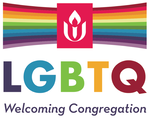History
First Parish Church was gathered in 1637 by religious freedom-seeking Puritans from Devonshire, in the southwest of England. Led by English-born Elizabeth Pole, they came from Dorchester, Massachusetts and settled first in Tetticut, then with others in Cohannet, which was purchased from Massasoit in 1638 and named Taunton in 1640 after the English town. The common land, later known as Meeting-house Common, and now known as Church Green, was laid out to the south and west of Dean Street, then an Indian trail. Here they erected their first meeting-house and established a common school in 1647. First Parish Church was the first church established within the present boundaries of Bristol County and the fifth established in the Old Plymouth Bay Colony.
Continuously since 1647, a house of worship (and the only church until 1741) has stood within Church Green. Within the first two meeting houses built on this Church Green, the civic and political business of the town was conducted until 1746. In 1671, the first meeting house was the site of negotiations and the signing of an agreement (on April 12th) that delayed hostilities between Plymouth Colony and King Philip, youngest son of Massasoit and Sachem of the Wampanoag Tribe. The bell, still in use, was transferred from the third meeting-house. It was cast in 1804 by George Holbrook of Brookfield who worked with the Paul Revere family until 1801 and then in partnership with Paul Revere Jr. until 1813.
A further corrective and expanded narrative of the events of King Philip’s War from an indigenous perspective may be found at a detailed exhibit on the second floor of the Old Colony History Museum (OCHM) in Taunton, across the street from the First Parish Church. OCHM writes:
“Fifty years after his father attended the first Pilgrim Thanksgiving, Metacom, Massasoit's younger son and sachem of the Wampanoags (now known to history as King Philip), was summoned to the Taunton meetinghouse…and forced to sign an agreement under which his followers would forfeit all of their firearms. The measure was an English attempt to remove the threat of violence that had been steadily building since Massasoit's death in about 1661. Instead of easing the conflict, the events at the Taunton meetinghouse exacerbated the bitterness already felt by the Native Americans over the loss of tribal land, the devaluation of their traditional currency and the increasing English challenges to Wampanoag sovereignty over their own affairs. Four years after Metacom's humiliation in Taunton, open warfare broke out between the colonists and their former allies.”
Continuously since 1647, a house of worship (and the only church until 1741) has stood within Church Green. Within the first two meeting houses built on this Church Green, the civic and political business of the town was conducted until 1746. In 1671, the first meeting house was the site of negotiations and the signing of an agreement (on April 12th) that delayed hostilities between Plymouth Colony and King Philip, youngest son of Massasoit and Sachem of the Wampanoag Tribe. The bell, still in use, was transferred from the third meeting-house. It was cast in 1804 by George Holbrook of Brookfield who worked with the Paul Revere family until 1801 and then in partnership with Paul Revere Jr. until 1813.
A further corrective and expanded narrative of the events of King Philip’s War from an indigenous perspective may be found at a detailed exhibit on the second floor of the Old Colony History Museum (OCHM) in Taunton, across the street from the First Parish Church. OCHM writes:
“Fifty years after his father attended the first Pilgrim Thanksgiving, Metacom, Massasoit's younger son and sachem of the Wampanoags (now known to history as King Philip), was summoned to the Taunton meetinghouse…and forced to sign an agreement under which his followers would forfeit all of their firearms. The measure was an English attempt to remove the threat of violence that had been steadily building since Massasoit's death in about 1661. Instead of easing the conflict, the events at the Taunton meetinghouse exacerbated the bitterness already felt by the Native Americans over the loss of tribal land, the devaluation of their traditional currency and the increasing English challenges to Wampanoag sovereignty over their own affairs. Four years after Metacom's humiliation in Taunton, open warfare broke out between the colonists and their former allies.”
The First Parish Church in Taunton is proud to be a major historical church of Taunton, founded in 1637 by our Puritan ancestors. We also recognize that our church’s history is complicated by the combined legacies of colonialism and slavery in the United States context. We acknowledge the history of Indigenous peoples and the dispossession of their lands, including that these original lands were named Cohannet by indigenous peoples. We pay our respects to the Wampanoag people who have stewarded this land throughout generations and honor their continued presence here and throughout their diaspora. We also acknowledge that we here in Taunton do not exist independently from centuries of forced labor and economic extraction from enslaved and indentured Black Indigenous People of Color (BIPOC) as well as poor white immigrants. And we want to affirm that while we cannot change history, we can work for justice, and that justice begins with recognition and acknowledgment first.

